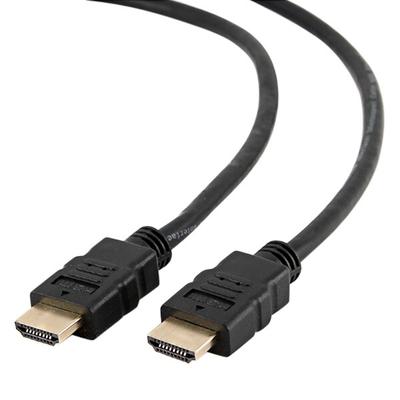
There is no reason why people with HIV/AIDS cannot enjoy traveling. However, depending on your condition and international travel formalities, you may need to adjust or change your plans.
Here are some tips to consider before you make any travel plans.
Research: If you plan to take an international trip, you may need to consider the laws of your destination country about your HIV/AIDS status and medicines. Many countries do not allow entry of people with HIV into their territories. Also, many governments may have restrictions about you entering their country with any particular medicine.
Consult with your Doctor: Before you make any domestic or international travel plans, talk to your doctor about any special precautions you might need to take to a particular destination. Depending on your present condition and the intended destination, your doctor may suggest new medication dosage or even veto your plans. For instance, when traveling from east to west or vice versa, you may need to adjust the time of your dose depending on the new time zone.
Your doctor can also recommend healthcare facilities in your destination if you may require any urgent treatment. This is especially vital if your itinerary includes any international destination.
Pack Well: Pack your medicines in your carry-on luggage in case of any flight delays or if you lose your luggage during transit. Also, carry some food with you during the flight. Find out beforehand the legal ways to carry your needles (if you need them for medicines) across international borders. Pack them accordingly.
Plan Better: Keep a list of doctors and good medical facilities handy in case you need them. Keep drinking enough water to prevent dehydration. Book your place of stay that offers good amenities.
Be Careful: Avoid heavy and spicy food during your travels. Refrain from eating street food and drinking tap water as your immune system is already weak and contaminated food and water can worsen your condition.
With some careful considerations, you can enjoy traveling even with HIV/AIDS. However, it is best to plan short trips first. But don’t go against the recommendations of your doctor.
Featured Products
-
POWER IT UP BY IMPECCA 6FT USB-C to HDMI 4K High Speed Cable in Black | Wayfair A-HDC206x5-604$83.99Fully functional large gauge high bandwidth cable Connect to any HDTV/Projector/LCD or Electronic Devices | POWER IT UP BY IMPECCA 6FT USB-C to HDMI 4K High Speed Cable in Black | Wayfair
-
The C2G 40304 6' High Speed 4K HDMI Cable with Ethernet is the perfect tool for connecting anything from computers to projectors and monitors, home entertainment systems to HDTVs and gaming systems, or any audio video applications requiring high speed...
Recent Blogs
-
4 common therapies used by pain management doctors
It is estimated that about 50 million Americans live with chronic pain all their lives. Living with chronic pain affects sleep, emotions, moods, work, and relationships. Although many people “learn” to live with the pain, the discomfort is not that easy is handle. Pain management doctors help in relieving and eliminating symptoms of pain.
The causes of pain can be physical, emotional or both. When you consult a pain management doctor, he will evaluate your case and investigate the various causes of your pain symptoms. Based on the diagnosis, he will recommend a therapy or a combination of therapies that will help to provide relief from pain. Pain management doctors also recommend techniques that you can incorporate into your daily life for better management of pain. Different people will different pain management therapies, but a majority of pain management programs have the following therapies in common:
Chiropractic care: Part of alternative medicine, chiropractic care therapy is generally used for symptoms of pain related to the nervous system and the musculoskeletal system. Pain management doctors suggest this technique mostly for lumbar spine pain, cervical spine pain, headaches, joint pain and radiating pain. Chiropractic care is one of the most affordable pain management treatment. It has been known to decrease dependency on medications and improve recovery period.
Heat or ice therapy: Pain management doctors recommend heat or ice therapy as a part of first line treatment for pain management. This is more of a conservative approach towards pain management, which is part of the initial stage of the treatment. If this approach does not work, your pain management doctor will recommend an interventional method of treatment that might also involve surgery.
Physical therapy: Physical therapy involves a set of physical activities or exercises that are focused on the areas affected by pain. Pain management doctors recommend this form of therapy to manage chronic pain as well as to rehabilitate patient after a major surgery. Physical therapy is also one of the first-line of treatments used for pain management. A continuous application of this therapy not only helps to provide relief from pain but also prevent recurrence of pain.
Oral pain medication: This is mostly a temporary therapy option that your pain management doctor may ask you to follow. You doctor might suggest over-the-counter analgesics or prescription pain relievers. Although dependency on oral pain medication is not recommended for long-term management of pain, pain management doctors usually recommend this therapy to provide immediate relief from pain.
-
 How to deal with schizophrenia when your family member is affected by the condition
How to deal with schizophrenia when your family member is affected by the conditionIf any of your family members suffer from the severe mental illness known as schizophrenia and you are confused whether to care for them at home or seek external assistance, the best option is to let a person with schizophrenia live with his or her family. However, in such a scenario, all the members must stay united and understand the disorder correctly. The first crucial thing to do is to recognise the schizophrenia signs and take proper guidance from a physician.
Few tips for dealing with a family member who shows schizophrenia signs
- When your loved one exhibits schizophrenia signs, not only the head of the family should check or control his or her emotions, but the other members must also keep this in mind. Remember to avoid blaming the affected member for spoiling their routine. You must try to control your aggression and also your behaviour must not be offensive.
- To make your loved one feel that everything is normal, it is the responsibility of the other members to possess a soothing and calm behaviour.
- A designated person should take the responsibility of administering the prescribed medications on time.
- Hearing silly voices or noises while talking is one of the most common schizophrenia signs. Keep this in mind; it is essential for all the members to talk calmly, apparently, and quietly to the patient.
- An individual having this mental disorder will be different than those people who are not suffering from it. Therefore, one of the important tips for the family for dealing with a schizophrenic member is to stay prepared as well as accept any unusual things.
- Family members may seek the assistance of a physician or a therapist to understand schizophrenia signs, and to learn how to stay safe from such a patient without hurting him or her.
- You must not make fun of or mock the schizophrenic member, no matter whatever the situation is.
Yes, it will be a challenging task. But with patience and perseverance, the condition can be managed among the family members right at home in a systematic manner for the benefit of everyone involved.
-
 Medical treatment for head lice
Medical treatment for head liceHead lice can be treated with home remedies, but if that doesn’t work in your favor, you can adopt medication for it and get rid of the lice. There are a set of medical products that are ideal for treatment of head lice. Having lice in your hair or your child’s hair can be a painful affair; the lice also spread very easily as they live in clothing and the hair. Most of the over-the-counter products include shampoos, lotions, and crme’s that are applied and then washed off. If the going gets too hard, your doctor might also prescribe tablets for the effective treatment of head lice.
Let us first look at over-the-counter medication for treatment of head lice.
- Permethrin crme rinse: Permethrin crme rinse like Nix can help you with an effective treatment for your head lice. It is usually the first standard medication your pharmacist will offer you with. This crme has the potency to kill lice and eggs for two or more weeks after it has been washed off from your scalp. Apply the crme, let is stay for an hour or more and wash your hair with water. You could also see the product for perfect directions of use.
- Shampoos: You can choose from a wide range of shampoos containing pyrethrin and piperonyl butoxide. The recommended shampoo is called Rid, and is available at most drug stores. Apply this shampoo to your hair when you are showering, let it stay for about ten minutes and then rinse it off thoroughly. The next round for this shampoo is ideally nine days after the first round, to help eradicate the newly hatched lice.
There are many other over-the-counter products for the treatment of head lice, but you must consult your doctor before using them as all of them do not have good evidence to show. They might have more side effects and risks than their original treatment.
Here are some prescribed medications for the treatment of your head lice:
- Benzyl alcohol: Benzyl alcohol can be an effective way to get rid of the head lice. The ideal way to use it is to apply it on your head, let it stay for 10 minutes and then rinse it off.
- Malathion lotion: You might have to apply this lotion in two sessions to completely eradicate the lice. Apply it on your hair, leave it for 8 to 12 hours and then rinse it off thoroughly for best results.




